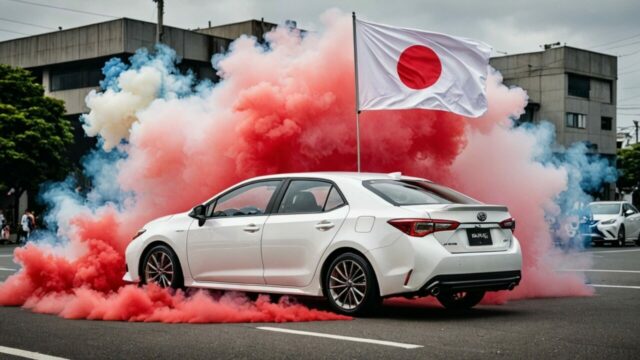The octane rating is a unit of measurement that indicates how resistant gasoline or other fuels are to compression. Technically, it specifies how much pressure the fuel can withstand during the compression of the air-fuel mixture inside the engine without igniting prematurely.
It’s considered a crucial factor in determining the quality of the fuel, as it helps prevent unwanted explosions (pre-ignition) during the engine’s compression process. In gasoline engines, fuel is ignited using spark plugs after compression. However, if the octane rating of the fuel doesn’t match the engine’s compression ratio, the fuel may ignite too early, reducing engine performance.
Different engines require different octane ratings. For instance, high-compression engines need high-octane fuels, while low-compression engines can run smoothly on lower-octane fuels.

Manufacturers generally specify the most suitable fuel for their engines, and vehicle owners should choose fuel based on the engine’s specifications. If the octane rating is insufficient, it can cause engine damage, leading to costly repairs in the long run.
Why is High-Octane Gasoline Important?
High-octane gasoline is especially critical for high-performance and turbocharged engines. In engines with high compression ratios, the air-fuel mixture is compressed at high pressure to generate more power. This increases the risk of the fuel igniting prematurely, causing unwanted explosions known as pre-ignition. High-octane gasoline is designed to prevent such explosions, allowing the engine to operate at peak performance.
In addition to enhancing engine performance, high-octane gasoline maximizes fuel efficiency, meaning the engine produces more power while optimizing fuel consumption. This provides drivers with both a performance boost and fuel economy benefits.
High-octane gasoline also helps the engine run cleaner since it burns more efficiently, reducing exhaust emissions and lowering its environmental impact compared to lower-octane gasoline.
Is Low-Octane Gasoline Worse?
Low-octane gasoline is ideal for engines with lower compression ratios, which require less compression power and can run smoothly on lower-octane fuel. It is commonly used in older model vehicles and engines with lower performance.
This type of fuel is usually cheaper than high-octane alternatives, making it a cost-effective option. However, using low-octane fuel in modern high-performance engines can lead to serious issues. The fuel may ignite prematurely within the engine, reducing performance and increasing fuel consumption. What seems like a cost-saving measure may end up costing more in the long run.
That said, low-octane fuel has its advantages. If your engine has a low compression ratio, using high-octane gasoline would be unnecessary, as high-octane fuel is only beneficial when it matches the engine’s requirements.
Does Octane Rating Affect Performance?
Manufacturers typically recommend high-octane fuel to help vehicles reach their full performance potential, particularly in engines with high compression ratios. High compression allows the engine to generate more power, and the fuel must be able to withstand higher pressure for the engine to run efficiently.
High-octane fuel ensures that the engine operates smoothly and efficiently. High-performance engines produce more power, consume less fuel, and generally offer more stable performance when using high-octane gasoline.
Additionally, high-octane fuels contribute to a cleaner engine. More efficient combustion reduces carbon buildup and deposits, helping the engine last longer and requiring less maintenance. This makes high-octane fuel particularly beneficial for high-performance vehicles.
Can You Find High-Octane Gasoline in Turkey?
In Turkey, the most common fuel type is 95-octane gasoline, available at almost every gas station as a standard option. However, for those seeking higher performance, some fuel companies in Turkey offer 97, 98, and even 100-octane gasoline in certain regions. International brands like BP, Shell, and Total provide these higher-octane options for drivers of performance vehicles.

Although high-octane gasoline is more expensive, it is preferred by owners of sports cars and high-performance engines. It’s easier to find these types of fuel in major cities, though it can be challenging to access them in rural areas.
Since high-octane fuel helps engines run efficiently, it can extend the engine’s lifespan and reduce maintenance costs in the long run, making it a valuable investment for drivers seeking performance. If your vehicle recommends using 97 or higher octane fuel, using 95-octane gasoline could lead to problems in the medium to long term.














